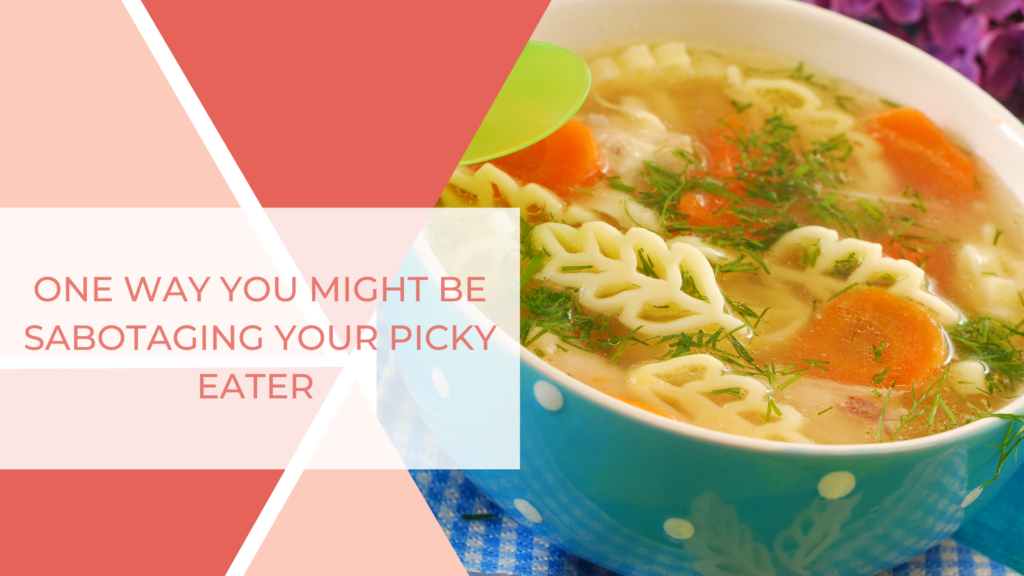I’d guess that you have an inner dialogue running through your mind before you even serve your child a new food:
“He isn’t going to eat that.
“She won’t like it.”
“That’s never going to work.”
“Psh, yea right.”

You’re not making these up. I know they’re well-informed assumptions based on years of experience and adamant refusals of new foods.
But here’s the thing, even though they’re based in reality, these thoughts and assumptions do not help you or your child.
Instead of assuming the worst or letting the past dictate your actions, you need to leave room for your child to surprise you with their eating.
Let Unpredictability Work In Your Favor
Kids are unpredictable. They’re always changing – their habits, tastes, preferences, and needs.
Which means they’re always surprising you….whether it’s how you want to be surprised or not.
There have probably been foods that your child has LOVED….until all the sudden they didn’t (and, ugh, still don’t).
On the other hand, I’m sure you’ve had the experience where they unexpectedly ate something that they’ve never even touched before (yes, it’s easy to forget about these times when they’re so sporadic, but think hard!).
Julie, a parent in my Eating with Ease Program, shared that her son chowed down on cucumber – a food he’d never had before – at a barbeque with friends one night. He’s been eating cucumbers with some regularity since.
Kate, another parent in the program, had a similar experience at her very own dinner table. Out of the blue, her 6-year-old served himself a meatball. And actually ate it!
Using Unpredictability to Your Advantage
What if we used that “unpredictability” as a positive?
Instead of assuming your child will not try something…
Instead of talking yourself out of even serving a new food or a food they used to love…
Change the conversation.
Instead, you can think: who knows!
They might surprise you.
What This Means
This means you need to create opportunities for the surprises to happen.
I find one of the best ways to do this is to have zero expectations (easier said than done, I know).
Two things help me do this successfully:
- Using very small portions when offering a new food. This both increases the chances that your child will eat and also minimizes the waste if they don’t, which can help you remove your attachment to the outcome.
- Offering the food when you’re not around. Maybe it’s packing it in their lunchbox or having your partner serve the food instead.
It still might feel like a long shot – but you know your child has done more surprising things before!
Looking for more support? Take a look at my book, Stories of Extreme Picky Eating: Children with Severe Food Allergies and the Solutions that Helped Them




0 Comments